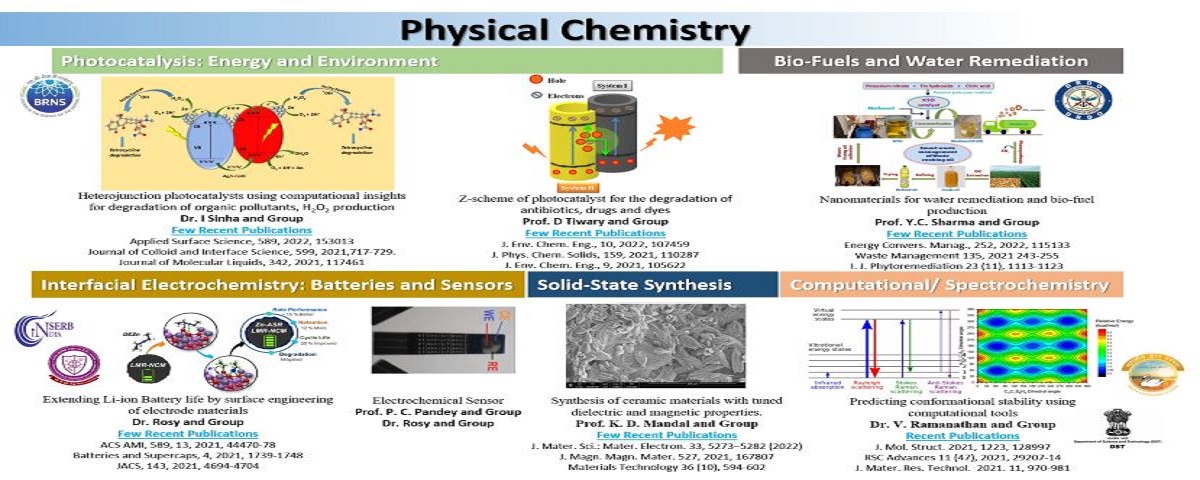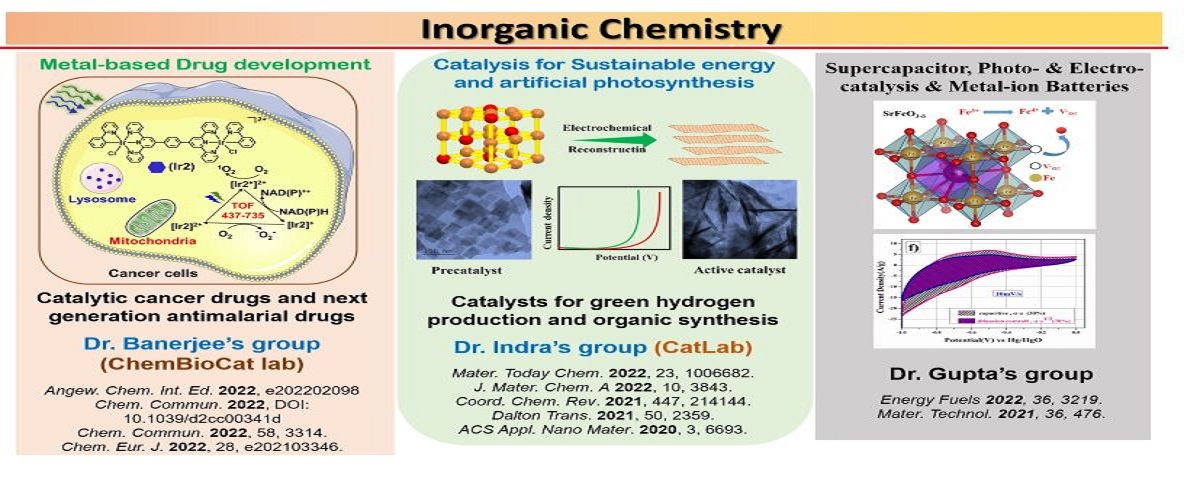Integrated Dual Degree (IDD) is a five-year course offered by the Department of Chemistry, IIT BHU-Varanasi. Currently more than 70 students are pursuing their M.Tech degree in this department. The maximum intake for this program is 20 students per year through IIT-JEE entrance examinations. Vision: Industrial Chemistry is concerned with the Chemistry based Research & Development requirements of Chemical Industries. This subject fills the gap between Pure Chemistry and Chemical Engineering courses. The first two years of M.Tech. Industrial Chemistry course therefore focuses on teaching of essentials of general Science and Engineering, basic Chemical Technology and Chemistry. In the next stage the course builds up on these fundamentals through advanced core courses of Chemistry. Finally, specialized applied chemistry courses with applications in critical areas are covered. Objective: The programme envisages the creation of manpower with strong fundamentals in Engineering and Chemical Technology in combination with good knowledge of fundamental and applied Chemistry.
To produce good scientist-engineers who are capable of contributing towards strengthening of the scientific foundation of Chemical Industries. Besides this, such manpower would be scientifically multifaceted personalities able to pursue careers either in Industrial or chemical technology research or in fundamental chemistry areas. Outcome: Development of manpower who could work in tandem with the chemical engineer on transferring small scale chemical reactions to large industrial scale. could play a part in optimising production to produce large amounts of a substance as cheaply as possible – but, unlike engineers, do so by making the ‘chemistry’ better and more efficient. who would be capable of doing research for development of new chemical ‘recipes’ by identifying industrial requirements for product development in a particular area. are scientifically multifaceted able to pursue careers either in Industrial or chemical technology research or in fundamental chemistry areas.
Ph.D.
The faculty members of the Department of Chemistry conduct cutting-edge research in many different areas of organic, inorganic, physical and analytical chemistry towards the enhancement of academic and industrial interactions. Organic synthesis, Carbohydrate chemistry, Green chemistry, Nanomaterials,Energy conversion and storage, Battery materials, Solid state chemistry, Sensors technology, Electrochemistry, Corrosion science, Bio-electrochemistry, Coordination and Organometallic chemistry, Theoretical and Computational chemistry,. Polymer science, Renewable energy and Bio-fuels are major research areas of this department.
The department has already produced more than 100 Ph.Ds and about 60 students are currently pursuing their doctoral studies. Faculty members publish research papers in leading International and National Journals and also contribute to various book chapters. Many research projects sponsored by government organizations and the industry are presently running in the department. Students are usually admitted to the Ph.D program through NET or GATE exams
- DST-FIST grant was received by the Department in 2014 for the procurement of AFM instrument
- IIT (BHU) and Max-Planck institute, Germany has signed MoU for conducting carbohydrate research (Dr. JK and Prof. P. H Seeberger)
- Department has published more than 100 papers in reputed journal in 2017.
- Department has running sponcerd projects worth of >2.0 crores
- Prof. Y C S was elected as FELLOW, Biotech Research Society of India (FBRS), 10 Oct 2017
- The teaching of the B. Tech. Part I Chemistry course.
- Teaching and running the 5 year M.Tech (Industrial Chemistry) Dual Degree and 2 year M.Sc. Chemistry programmes.
- Cutting edge research in various thrust areas of chemistry leading to state of the art PhD's.
Till 2013, the Department of Chemistry offered a five-year integrated M. Tech program in Industrial Chemistry. In 2014, this programme was converted into M. Tech Dual Degree in Industrial Chemistry. The Ph. D programme in Chemistry has been running in the department right from its inception. About 125 PhD's have been awarded from this department and more than 70 students are currently pursuing their research. Research programmes in the department have been supported by funding agencies like DST, CSIR, BRNS, UGC and AICTE etc. The department has received 85 lakhs from DST-FIST for the establishment of research and teaching facilities. The central instrumentation laboratories of the department are presently equipped with sophisticated instruments including AAS, AFM, UV-Vis spectrophotometers, FT-IR, and powder-XRD, AFM, Table Top NMR and DLS (Particle Size Analyzer) etc.

Department of Chemistry
(i) The teaching of chemistry courses in B. Tech & M. Tech Dual Degree programmes.
(ii) Cutting edge research in various thrust areas of chemistry leading to state of the art PhD's.
Till 2013, the Department of Chemistry offered a five-year integrated M. Tech program in Industrial Chemistry. In 2014, this programme has been converted into M. Tech Dual Degree in Industrial Chemistry. The Ph. D programme in Chemistry is running in the department right from its inception. About 125 PhD's have been awarded from this department and more than 50 students are currently pursuing their research. Research programmes in the department have been supported by funding agencies like DST, CSIR, BRNS, UGC and AICTE etc. The department has received 85 lakhs from DST-FIST for the establishment of research and teaching facilities. The central instrumentation laboratories of the department are presently equipped with sophisticated instruments including AAS, AFM, UV-Vis spectrophotometers, FT-IR, and powder-XRD, AFM, Table Top NMR and DLS (Particle Size analyser) etc.
- _
- _
Organic Synthesis
Nonmaterials & Environmental Chemistry
Solid State Chemistry
Electrochemical Sensors/Biosensors





